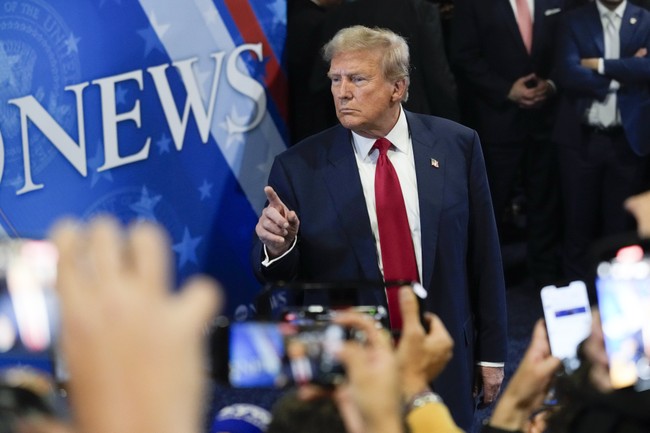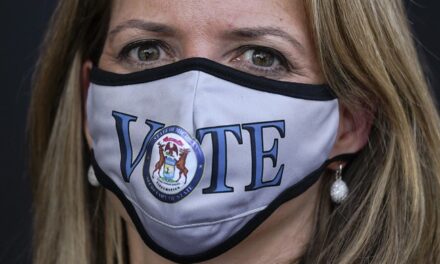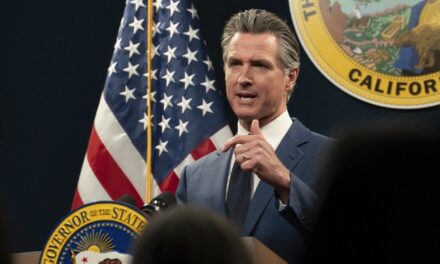We support our Publishers and Content Creators. You can view this story on their website by CLICKING HERE.

Earlier this afternoon, Duane expressed significant skepticism over claims that Kamala Harris had a post-debate bump in battleground states. It didn’t take long for confirmation, and this time from a quite unlikely source.
Advertisement
According to a new poll from the Washington Post, Pennsylvania voters give Kamala Harris the win in last week’s debate. They also don’t care much about it either. Donald Trump has pulled into a solid tie in the Keystone State, and a shift may be happening in the Senate race as well:
One week after a debate that Pennsylvania voters widely say Harris won, she is favored by 48 percent of both likely voters and registered voters, while Trump is supported by 47 percent of voters in both categories. Third-party candidates are not a major factor in the race, The Post’s poll finds: After excluding minor candidates, Harris and Trump are both at 48 percent among likely voters, with Harris at 48 percent and Trump at 47 percent among registered voters.
More than 8 in 10 registered voters in Pennsylvania reported watching at least some of last week’s presidential debate, including similar majorities of Democrats, Republicans and independents. Twice as many debate-watchers said Harris won the debate than said Trump, 54 percent to 27 percent, with another 17 percent saying neither won.
First off, let’s note that WaPo polls tend to tilt toward Democrats, and sometimes by design. The sample in this case seems pretty reflective of Pennsylvania, however; Democrats and Republicans both make up 35% each of the sample, with 24% indicating unaffiliated status, a bit overrepresented from 2020’s 19%. The age demos seem roughly in line with 2020 exit polls though, and the race and gender demos are an almost exact match. A sample of 1003 registered voters is a significant sample for a state poll, too, with 93% of the sample being “certain to vote.” Given that over 80% of the sample watched the debate, it appears that the LV sample is robust enough for some predictive value.
Advertisement
With that being said, the only thing we can predict from this is that the race will be close. Harris still doesn’t have a lead in PA, even with the debate win and lots of media wind at her back. Another indicator in this poll suggests that Republicans may be gaining momentum, because Harris isn’t the only incumbent trapped in a tie:
The state’s closely watched Senate race also appears to be tight. Democratic Sen. Bob Casey has the support of 47 percent of likely voters, while Republican challenger Dave McCormick is backed by 46 percent. Excluding third-party candidates, the two are tied at 48 percent each. Democrats cannot afford to lose Casey’s seat if they hope to keep their narrow majority in the chamber.
This result is a real stunner. RCP’s aggregation has shown Casey with a comfortable lead over Republican challenger McCormick since … well, forever. Until this poll, McCormick had trailed outside of the margin of error in every single poll save a CNN poll late last month. Both NYT/Siena and Quinnipiac had Casey up by nine points in polls released this week.
That could make this poll an outlier, of course, and the WaPo poll has certainly been that in the past. It usually goes in the other direction, however. If it turns out to be accurate, it looks like a concerted shift in momentum to Republicans in Pennsylvania, and that won’t help Harris hold the one state she cannot afford to lose.
Advertisement
On the other hand, another indicator doesn’t look nearly as good for Trump. Since the debate, Harris has opened a lead in the betting markets tracked by RCP, and it has grown steadily if not dramatically during the past week. Harris leads in all seven markets, and the aggregate odds now favor her 52/4/46.1. This has been a pretty good leading indicator of national polling over the last couple of months, and this would seem to indicate some momentum for Harris — but where that’s originating is another matter. Is she building up her base in blue states, or making inroads in battlegrounds?
If the WaPo poll is accurate, it suggests the former rather than the latter — and reminds us to watch state polling more than the national polls from this point forward.

 Conservative
Conservative  Search
Search Trending
Trending Current News
Current News 







